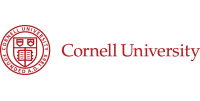
What exactly are genetically modified organisms (GMOs) and why do scientists develop them? Studying the science of GMOs helps us understand biotechnology’s potential role in addressing challenges in agriculture.
In this introductory Food and Nutrition course, you will learn the basics of genetic engineering, explore the political debate around the GMO and review the arguments for and against their use.
Read more
What exactly are genetically modified organisms (GMOs) and why do scientists develop them? Studying the science of GMOs helps us understand biotechnology’s potential role in addressing challenges in agriculture.
In this introductory Food and Nutrition course, you will learn the basics of genetic engineering, explore the political debate around the GMO and review the arguments for and against their use.
What exactly are genetically modified organisms (GMOs) and why do scientists develop them? Studying the science of GMOs helps us understand biotechnology’s potential role in addressing challenges in agriculture.
In this introductory Food and Nutrition course, you will learn the basics of genetic engineering, explore the political debate around the GMO and review the arguments for and against their use.
We will study the politics surrounding the GMO and its impact at both an individual level and to society as a whole; including the problems, perceptions, benefits, and risks associated with GMOs. Important to understanding the complexities around this topic we will not only be looking at the science behind how the GMO works, but also to the limitations of this science. We will also discuss the importance of information literacy as a tool for effectively identifying and evaluating issues.
Our goal is that this MOOC will impact people's understanding of science, what it can and can't do, and how information is transmitted. The intent is not to influence how people feel about GMOs, but to give them the critical thinking and scientific literacy tools necessary to make informed decisions — and to understand the broader impacts of those decisions.
What you'll learn
- Assess, understand and apply social science concepts as they affect the development and use of biotechnology products and processes
- Gain an understanding of how biotechnology intersects with globalization, trade, poverty, food security, and environmental sustainability
- Understand and evaluate research articles and research methods related to biotech crops
- Learn to formulate well-structured research questions, recognize appropriate research methods, and assess research reports
- Craft thoughtful and effective arguments, with supporting evidence at the intersection of science and social science on issues of public policy
What's inside
Learning objectives
- Assess, understand and apply social science concepts as they affect the development and use of biotechnology products and processes
- Gain an understanding of how biotechnology intersects with globalization, trade, poverty, food security, and environmental sustainability
- Understand and evaluate research articles and research methods related to biotech crops
- Learn to formulate well-structured research questions, recognize appropriate research methods, and assess research reports
- Craft thoughtful and effective arguments, with supporting evidence at the intersection of science and social science on issues of public policy
- Assess, understand and apply social science concepts as they affect the development and use of biotechnology products and processes
- Gain an understanding of how biotechnology intersects with globalization, trade, poverty, food security, and environmental sustainability
- Understand and evaluate research articles and research methods related to biotech crops
- Learn to formulate well-structured research questions, recognize appropriate research methods, and assess research reports
- Craft thoughtful and effective arguments, with supporting evidence at the intersection of science and social science on issues of public policy
Syllabus
Week 1 - Introduction/Why GMOs
Week 2 - Why not GMOs
Week 3 - Contributions and Limits of Science
Week 4 - Politics and Society
Read more
Syllabus
Good to know
Save this course
Reviews summary
Informative gmo overview
Activities
Career center
Teacher
Science Policy Analyst
Science Communicator
Science Writer
Technical Writer
Patent Attorney
Sustainability Manager
Product Manager
Food Scientist
Regulatory Affairs Specialist
Health Educator
Toxicologist
Risk Assessor
Environmental Analyst
Public Policy Analyst
Featured in The Course Notes
Reading list
Share
Similar courses
OpenCourser helps millions of learners each year. People visit us to learn workspace skills, ace their exams, and nurture their curiosity.
Our extensive catalog contains over 50,000 courses and twice as many books. Browse by search, by topic, or even by career interests. We'll match you to the right resources quickly.
Find this site helpful? Tell a friend about us.
We're supported by our community of learners. When you purchase or subscribe to courses and programs or purchase books, we may earn a commission from our partners.
Your purchases help us maintain our catalog and keep our servers humming without ads.
Thank you for supporting OpenCourser.




